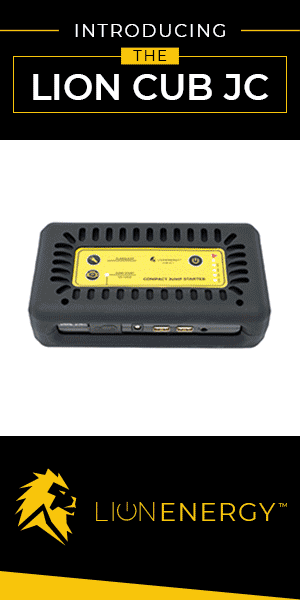Introduction
Are you a small business owner concerned about rising energy costs and your carbon footprint? Renewable energy small business grants could provide the perfect solution to both problems. In today’s world, sustainability is no longer optional—it’s essential. But adopting renewable energy solutions can feel like a daunting financial commitment for small businesses.
That’s where grants come in. These financial programs can help you offset costs, improve energy efficiency, and gain a competitive edge by adopting green technologies. In this comprehensive guide, we’ll cover everything you need to know about renewable energy small business grants, including top programs, tips for applying, and how they can revolutionize your business operations.
What Are Renewable Energy Small Business Grants?
Renewable energy small business grants are financial incentives provided by federal and state governments, nonprofit organizations, and private companies. These grants are designed to help small businesses implement clean energy projects, such as installing solar panels, wind turbines, or energy-efficient HVAC systems.
Unlike loans, grants typically don’t require repayment, making them one of the most cost-effective ways for small businesses to adopt sustainable practices.
Key Benefits of Renewable Energy Grants
- Cost Savings: Grants reduce or eliminate the upfront costs of renewable energy installations and efficiency upgrades, allowing you to save on energy bills in the long term.
- Environmental Impact: By switching to renewable energy, your business contributes to reducing greenhouse gas emissions and combating climate change.
- Enhanced Brand Image: Green businesses are more appealing to eco-conscious customers, partners, and investors.
- Regulatory Compliance: Many local governments are imposing stricter energy regulations, and adopting renewable energy solutions now can future-proof your business.
Types of Renewable Energy Small Business Grants
There are several types of grants available, and understanding them can help you choose the right one for your business.
1. Federal Renewable Energy Grants
The federal government offers a range of programs to encourage renewable energy adoption:
- Rural Energy for America Program (REAP): Managed by the U.S. Department of Agriculture (USDA), REAP provides grants and loans for renewable energy projects in rural areas.
- Funding: Grants cover up to 25% of project costs.
- Eligible Projects: Solar panels, wind turbines, geothermal systems, and energy efficiency upgrades.
- Small Business Innovation Research (SBIR) Program: This program funds innovative clean energy technologies. If your business is developing groundbreaking renewable energy solutions, SBIR can be a valuable resource.
- Energy Efficiency and Conservation Block Grant Program: This program helps businesses reduce energy consumption through efficiency upgrades, often distributed at the state or municipal level.
2. State-Specific Renewable Energy Grants
States often have their own renewable energy grant programs tailored to their specific needs and energy goals.
Notable Examples:
- California Energy Commission (CEC): Offers grants for small businesses to adopt solar power, wind energy, and other renewable technologies.
- New York State Energy Research and Development Authority (NYSERDA): Provides funding for renewable energy projects, including energy storage and efficiency upgrades.
- Massachusetts Clean Energy Center (MassCEC): Supports small businesses in adopting clean energy and implementing green building practices.
These programs often pair with local utility companies to offer additional rebates or incentives, creating a significant financial advantage for small businesses.
3. Private and Nonprofit Grants
Nonprofits and private organizations also offer grant programs, particularly for businesses with a strong commitment to sustainability.
- The Solar Moonshot Program: Designed for small businesses looking to install solar energy systems, this program can cover significant portions of installation costs.
- Local Utility Rebates: Many utility companies offer grant-like programs that help small businesses reduce the cost of renewable energy adoption.
Additionally, organizations like the Sierra Club or environmental foundations occasionally fund energy-saving projects, especially in underserved communities.

How to Apply for Renewable Energy Small Business Grants
Navigating the grant application process can feel overwhelming, but with proper preparation, you can maximize your chances of success.
Step 1: Assess Your Needs
Begin by evaluating your business’s energy usage and identifying areas where renewable energy or efficiency upgrades could have the most impact. Conduct an energy audit to gather data and insights.
Step 2: Research Eligibility Requirements
Each grant program has unique criteria. Ensure you meet the requirements regarding business size, location, and project scope before applying.
Step 3: Create a Comprehensive Proposal
A strong proposal is key to securing funding. Your application should include:
- A clear description of your project and its benefits.
- A detailed budget outlining how the grant funds will be used.
- Evidence of your business’s commitment to sustainability and financial responsibility.
Step 4: Prepare Supporting Documentation
Commonly required documents include:
- Business financial statements.
- Tax returns.
- Energy audit reports.
- Proof of business registration.
Step 5: Submit Early and Follow Up
Submit your application well before the deadline and maintain regular communication with the grant provider to stay updated on the review process.
Real-World Success Stories
Understanding how others have benefited from renewable energy small business grants can inspire and guide your efforts.
Case Study 1: A Rural Bakery
A small bakery in Iowa secured funding through the REAP program to install solar panels and upgrade its refrigeration system. The grant covered 25% of the costs, and the bakery now saves $5,000 annually on electricity bills.
Case Study 2: An Urban Office Building
A New York City-based coworking space received a NYSERDA grant to retrofit its HVAC system, improving energy efficiency and reducing monthly utility bills by 30%.
FAQs
Q: What are renewable energy small business grants?
A: Renewable energy small business grants are financial incentives provided by governments, nonprofits, and private organizations to help small businesses adopt clean energy solutions like solar panels, wind turbines, and energy-efficient systems. These grants typically don’t require repayment, making them a cost-effective way to transition to sustainable practices.
Q: How do I know if my business is eligible for a grant?
A: Eligibility requirements vary by grant program but often depend on factors like business size, location, industry type, and the nature of the energy project. Federal grants like the Rural Energy for America Program (REAP) target rural businesses, while state-specific programs may cater to local priorities.
Q: What types of projects do renewable energy grants cover?
A: Grants commonly fund projects such as:
- Installing solar panels or wind turbines.
- Upgrading HVAC systems for better energy efficiency.
- Conducting energy audits.
- Integrating battery storage or other energy-saving technologies.
Q: Do renewable energy grants cover 100% of project costs?
A: Most grants do not cover the entire cost. Typically, they fund a percentage—often between 20-50%—of the total project. You may need to combine grants with additional financing, like loans or utility rebates, to cover the remainder.
Q: Where can I find renewable energy grants for small businesses?
A: You can find grants on platforms like:
- Grants.gov for federal opportunities.
- State energy department websites for local programs.
- Nonprofit and private organization websites focused on sustainability.
Additionally, local business networks and chambers of commerce often have resources to connect you with grants.
Q: What documents are required to apply for a grant?
A: While requirements vary by program, you’ll typically need:
- A business plan.
- Financial statements or tax returns.
- A description of your energy project, including goals and expected impact.
- An energy audit report (if applicable).
- Business registration and proof of eligibility.
Q: How long does it take to receive grant funding?
A: The timeline varies widely depending on the program. Some grants provide funding within a few months of approval, while others may take longer due to competitive application processes or detailed review periods.
Q: Can startups apply for renewable energy grants?
A: Yes, many grants are open to startups, particularly those innovating in renewable or clean energy technologies. Programs like the Small Business Innovation Research (SBIR) grant focus specifically on fostering innovation in this field.
Q: Are there tax benefits for renewable energy projects?
A: Yes, in addition to grants, many renewable energy projects are eligible for federal and state tax credits, such as the Investment Tax Credit (ITC) for solar installations. These credits can further reduce the cost of adopting renewable energy.
Q: What if my grant application is rejected?
A: If your application is rejected, don’t be discouraged. Consider reapplying after revising your proposal or exploring alternative funding options like:
- Low-interest green loans.
- Utility rebates.
- Other grant programs with different criteria.
You can also seek feedback from the grant provider to improve your chances of success in the future.

Taking the First Step Toward a Greener Future
Renewable energy small business grants present an incredible opportunity to reduce costs, enhance sustainability, and future-proof your business. Whether you’re looking to install solar panels, adopt wind energy, or improve energy efficiency, there’s a grant program to support your goals.
Start by conducting an energy audit, researching grant opportunities, and crafting a strong application. The transition to renewable energy is not only an investment in your business but also in the planet’s future.
Disclosure: As an Amazon Associate, I earn from qualifying purchases.

